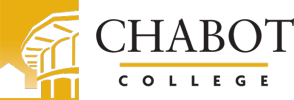
Medical Assisting
This program map from the 2024-2025 catalog year represents one possible pathway to complete this program. Your pathway may vary depending on your transfer plans and also previous college credit, including AP Test scores, concurrent enrollment courses and high school articulated courses.
I'm ready to get started. What do I do next?
- Review this program map to get an overview of the required courses
- Meet with a counselor to develop your customized student education plan www.chabotcollege.edu/counseling
- Use DegreeWorks, an online student education planning tool, to track your progress toward graduation www.chabotcollege.edu / admissions / degreeworks
Looking for a career in healthcare? Medical Assistants are multi-skilled allied health professionals who can perform a variety of administrative and clinical skills. According to the 2019 Labor Market Data report, there will be a 14% increase in annual openings for medical assistants from 2018 to 2023 in the Bay Area Region.
What can I do with this major?
Graduates of the Medical Assisting programs at Chabot College can apply for employment as Medical Assistants in an ambulatory care setting. Job titles include medical assistant, medical receptionist, certified medical assistant, scheduler, and medical office assistant.
Learning and Career Pathway
- Health and Wellness